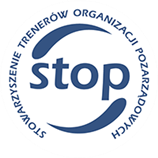Interview with Katarzyna Cieloch
Katarzyna Cieloch – mentor and careers advisor . She works for the Foundation ACTIVATION in Silesia (Skoczów, Cieszyn). Currently she is involved in a project for people with disabilities living in small towns and villages.
What is your experience in working with blind and visually impaired people?
Recently I was involved in a project for people living in small towns and villages. This project is highlighting a very important need for the blind and visually impaired at the macro level, since it is difficult to be active in the labor market, when you live in a place without sustainable access to labor market institutions have a limited ability to use information and professional projects.
In directing assistance to people with disabilities main role plays flexibility. It allows you to customize activities/ forms of support to the individual needs of each participant. These needs are diverse, there are people who are doing better, have a greater knowledge of the labor market, access to different data/ training, but e.g. lack of the social contacts and vice versa. Still there are many people in Poland who do not know where and how to buy a white cane.
What is the role of social skills on the way to vocational activation?
The big problem is relatively weak social rehabilitation of the blind and visually impaired people in Poland. People do not know that they can take advantage of the spatial orientation course, or devices that can facilitate their functioning, for example device for measuring liquids.
Blind people admit that they often do not have the ability to do something by themselves, for example listen to the music from CD when the plate does not contain the tactile symbol – this is a big problem. Independence plays a huge role in dealing in the labor market. Making contact with other blind people expands knowledge of various possibilities.
For many people, a great discovery was the possibility to take a trip or cycling (in tandem). Organized theatrical performances with audio description. In my area are carried out by the Polish Theatre in Bielsko Biała.
Are there restrictions in the catalog of available jobs for people with impaired vision?
I think this is sometimes limited by our imagination. Some things are difficult to try without knowing the technical possibilities that are developing. Certain professions are becoming more available. I know therapy workshops where blind people are working in printing workshops (bookbinder), which would seem impossible. Appropriate job adjustments allows such things. The second example is accounting. I worked with a client who lost vision, previously worked with a magnifying glass, and it was very tiring. She did not know that he can buy a speaking program that will facilitate its work. Technical solutions are preventing exclusion from the labor market.
On the other hand there are very important measures aimed at employers who do not know what are the solutions and what might be helpful.
How do you prepare to work with the blind and visually impaired people?
What according to you is the most important in this job?
Paper and pen is not an option as every other form of communication, when it is limited cognitive capability of a particular person. Individual assessment of needs is important. The question of: what you need, how can you pass it, would be understandable. Not to stereotype blind people. It can go in the wrong direction. What is needed is an in-depth interview, identification of needs and opportunities, and keep your finger on the pulse, that is, knowledge of technical innovations to improve the lives of blind people.
When I’m preparing materials in paper form I send it by e-mail to blind and visually impaired people – because they can use it with special programs (converting text into speech). But many people do not have such a program because they do not know that they exist and that they can be accessed for free.
What challenges do you identify in this area?
Do technology and the activity of a blind person can break the stereotypes on the labour market?
It is said about the difference between people who loss their sight and those who were born blind.
People who lost their sight, need at the beginning to organize their life, learn to live with this disability. Here may arise psychological problems. Contact with a psychologist, therapist is very important, perhaps even necessary. After pulling oneself together professional activation can be addressed. And here it all depends on professional potential. Sometimes you have to look for new opportunities because if someone worked as a customs officer, even modern technologies do not allow him to return to the profession. You have to look for new opportunities, new solutions.
Do the Polish education system plays an important role on this issue?
However, there are training centers that can perfectly prepare within the framework of courses and trainings blind adults to work. Lecturers are prepared to work with this group, they can be well prepared to perform a variety of professions, prepare to use the knowledge in practice.
The interview was conducted as part of the project „The learning process of blind and visually impaired people in non-formal and informal context”.

